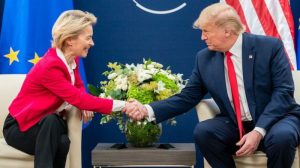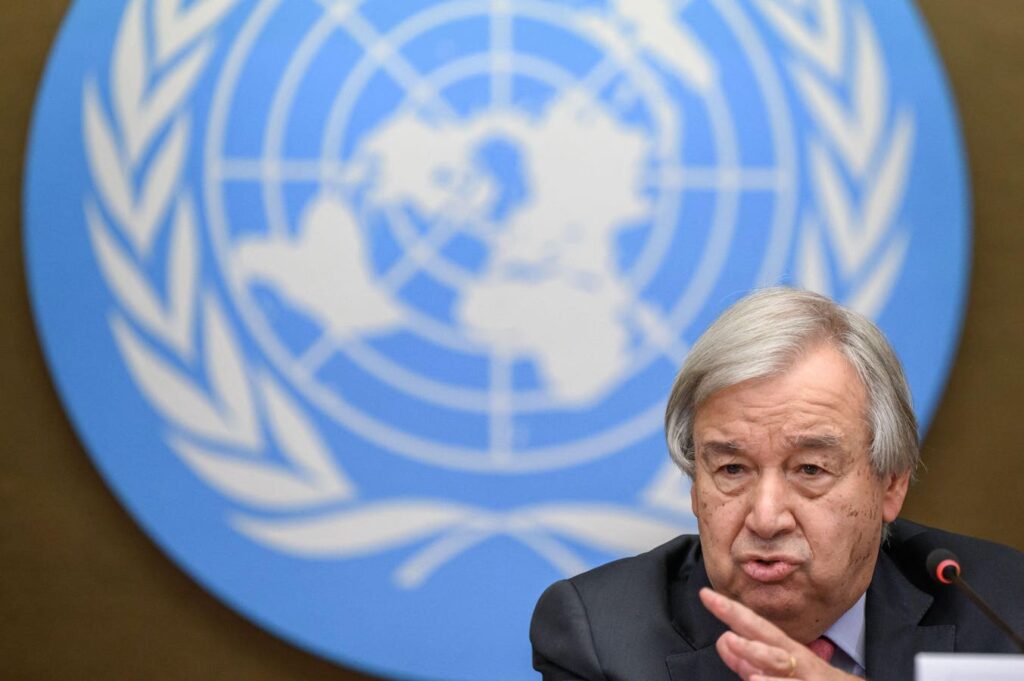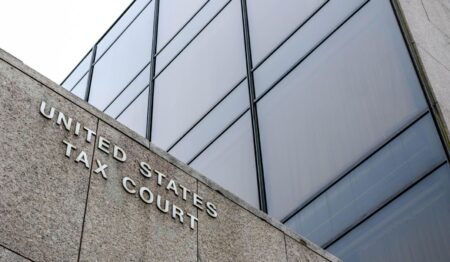U.N. Secretary-General António Guterres is expected to release a much-anticipated report on international tax cooperation within a few weeks. As the international tax community waits — and speculates — on what that report might say, the secretary-general recently offered a small hint.
At the end of May he released a report calling for a new international financial architecture underpinned by sustainable development goals. That report, “Our Common Agenda Policy Brief 6: Reforms to the International Financial Architecture,” argues that the international financial architecture is in a decisively weak moment: “The international financial architecture, crafted in 1945 after the Second World War, is undergoing a stress test of historic proportions — and it is failing the test.”
How can the system get back on track?
The U.N. thinks the international system needs reform in six key areas. One of them is international tax. And in this area, the policy brief offers some suggestions that could support and reshape ongoing international tax reforms and initiatives.
The U.N.’s Case for Reform
Nearly 80 years ago, delegates from 44 countries convened at Bretton Woods, New Hampshire, where they developed a new international monetary system. That meeting, the Bretton Woods Conference, laid out a framework for global financial stability after World War II.
In the decades since, the international policymaking environment has become starkly different, and the U.N. secretary-general points out that there are many more global players now. For example, the World Bank and IMF each have about 190 members, more than quadruple the number of countries involved in Bretton Woods.
Over the years, policymakers have talked about revisiting this international agreement, and they became particularly serious during the 2007-2008 global financial crisis. European lawmakers largely saw the events as an opportunity for a new kind of Bretton Woods agreement, a “new global financial order.”
At the time, French President Nicolas Sarkozy and U.K. Prime Minister Gordon Brown led the campaign for this international financial reform. Based on their canvassing, the G-20 in 2009 promised it would completely reform global financial institutions and update their scope, governance, and mandates.
The secretary-general says those beginnings were promising, but underwhelming, especially because developing country representation in international financial institutions, regional development banks, and standard setting bodies has remained low despite several attempts at improvement.
In the tax realm, the secretary-general’s main goal is to redesign the global tax architecture in a manner that promotes equitable and inclusive sustainable development. In the report, he mentions three relevant action items that could help drive this change.
Reimagining Tax Cooperation
The first item, action 15, is about “strengthen[ing] global tax norms to address digitalization and globalization through an inclusive process, in ways that meet the needs and capacities of developing countries and other stakeholders.”
Here, the secretary-general lists two goals:
- explore options to make international tax cooperation fully inclusive and more effective; and
- simplify global tax rules to benefit developing country tax administrations that do not have enough resources.
More details are expected in the secretary-general’s upcoming report, which he is writing in response to a recent demand that the U.N. reevaluate its role in international tax cooperation and consider the possibility of creating a U.N. framework on international tax cooperation.
This effort on international tax cooperation feels more robust than previous ones. And the U.N. is beginning to pick up some surprise supporters. Notably, the European Parliament recently signaled its approval in a resolution calling on the EU to support a U.N. tax cooperation framework.
This move is unexpected because the EU delegation to the United Nations believes the U.N. should support the OECD’s work rather than embark on potentially duplicative endeavors. However, the EP resolution noted that there have been repeated calls for a greater U.N. presence in international tax.
For example, in 2019 the Africa Group at the United Nations called for a U.N. convention on tax as an important tool for tackling illicit financial flows, and in February 2021 the U.N. High Level Panel on International Financial Accountability, Transparency and Integrity also suggested a U.N. tax convention in its final report.
The EP’s language is unequivocal in that it:
“calls for the EU to support the setting up of a UN framework convention on tax, with the aim of strengthening international cooperation and governance on tax and trade-related illicit financial flows; [and] highlights the need to introduce transparent and inclusive decision-making where all countries can negotiate as equals.”
A Pillar 2 for Developing Countries
The second item, action 16, is all about pillar 2. The secretary-general says that pillar 2 can be improved to reduce wasteful tax incentives and encourage taxation in source countries through one main goal, which is to:
“Significantly increase the global minimum corporate income tax rate to be close to the statutory tax rates in most developing countries and give preference to source country taxation.”
While the U.N. welcomes a global minimum corporate income tax, it also believes that “the minimum is likely to become a maximum due to tax competition.”
“Developing countries have repeatedly called for setting the global minimum tax rate at a significantly higher level that is more in line with statutory tax rates prevailing in their countries. The agreement needs to give first priority to source country taxation and include stronger rules to eliminate tax base erosion,” the brief says.
The brief doesn’t elaborate on what it means to prioritize source country taxation rights under pillar 2, but this will be an important area to watch.
The global anti-base-erosion (GLOBE) rules contain two main parts — first, the income inclusion rule, under which a top-up tax is first applied at the level of the ultimate parent entity, proportional to its ownership interests in the group entities with low-taxed income, then applied down the ownership chain.
The UTPR (formerly known as the undertaxed payments rule) works as a backstop to the IIR by denying a deduction or by imposing source-based taxation for a payment to a related party that’s not subject to tax at, or above, the minimum rate.
However, the GLOBE rules contain an important provision for source countries — they allow jurisdictions to apply a qualified domestic minimum top-up tax (QDMTT) on income earned within their borders, effectively giving source countries a first taxing right over GLOBE income.
A QDMTT isn’t a mandatory part of pillar 2, but the order of application encourages source countries to implement one because a QDMTT (if set high enough) will cancel out the IIR by reducing the residence country’s top-up tax to nothing, according to the OECD. However, jurisdictions won’t experience a competitive disadvantage in implementing a QDMTT because another country will tax the income via the IIR or UTPR if the source country chooses to forgo the opportunity.
Further prioritizing source country taxation rights could look like encouraging source countries to enact QDMTTs, which some groups, such as the African Tax Administration Forum, are already doing. It also could look like lobbying for further negotiations on the pillar 2 rule order.
As for the minimum tax rate, 15 percent is pillar 2’s floor, but it’s unclear whether countries could band together and create their own regional minimum rate. While such regional approaches are infrequent, there is some precedent for this; for example, in Africa both the West African Economic and Monetary Union and Communauté Economique et Monétaire de l’Afrique Centrale set a 25 percent minimum corporate income tax rate for their member countries.
Establishing a higher rate for domestic minimum top-up taxes (DMTTs) may be possible. In administrative guidance, the OECD said that a QDMTT rate must equal or exceed the 15 percent minimum rate, so the OECD is already anticipating that countries may choose to apply higher rates.
Doing so could partially fulfill the U.N.’s aims because developing countries — which generally are not home to the large multinationals subject to GLOBE — are unlikely to implement the IIR. As for the UTPR, there has been speculation as to whether countries can unilaterally increase their UTPR rate, but the rate issue may not be as flexible as it is in the case of DMTTs.
In the pillar 2 blueprint the OECD stated that the application of the UTPR will likely have to be coordinated across jurisdictions to ensure that top-up taxes applied to a multinational do not exceed the amount necessary to reach the 15 percent minimum rate.
Boosting Tax Transparency
The last tax agenda point, action 17, is about tax transparency. The secretary-general wants to achieve two main goals:
- create nonreciprocal tax information exchange mechanisms to benefit developing countries; and
- publish beneficial ownership information for all legal vehicles.
This kind of work is already being done by the OECD and the Financial Action Task Force, but the secretary-general’s goals would advance that work in new directions.
On the issue of information exchange, the brief calls on the international community to create mechanisms that would automatically provide banking and financial account information to developing countries on a nonreciprocal basis until they can exchange information reciprocally.
As things stand, some developing countries participate in the automatic exchange of information reciprocally, and others on a nonreciprocal basis, which means that they can share information but cannot request it because of confidentiality, data privacy, and infrastructure concerns. Some stakeholders have argued that this arrangement prevents developing countries from accessing information they need to tackle illicit financial flows.
The policy brief also supports the wider use of treaty-exchanged tax information to help prosecute nontax financial crimes. Specifically, the U.N. says that international agreements should be amended to support that kind of exchange but doesn’t elaborate on how that can be done.
Further information on this will be key because there already are domestic and international frameworks that allow for this wider use. It appears that the issues surrounding the wider use of treaty-exchanged information are more about education and implementation than legal access.
The policy brief also calls for public beneficial ownership systems that have broad coverage and automated verification of information. This could help advance the conversation as more countries develop beneficial ownership registers or refine existing ones.
Past vs. Present
This isn’t the first time the U.N. has talked about building a new global financial architecture, but it is the first time that the organization has substantially incorporated taxation into that conversation.
In 1999 a U.N. task force released a report discussing ways to build a new international financial architecture. That report, “Towards a New International Financial Architecture,” presented the U.N. secretariat’s unified position on economic, social, and related issues. It was created in response to the global financial crisis of the late 1990s and addressed how global stakeholders can prevent and manage financial crises.
Taxation appeared only briefly in that report. In one section, the task force called for fiscal, monetary, and financial international codes of conduct to enhance corporate governance and financial transparency to improve accounting standards as well as financial supervision and regulation.
The report suggested that international anti-money-laundering and anti-asset-laundering standards and anti-corruption and anti-tax-evasion measures were necessary. In another section, the report discussed taxation in the context of capital inflows and outflows, suggesting that developing countries create tax strategies to manage those flows in times of crisis.
The U.N. revisited the idea in its “World Economic and Social Survey 2010,” which devoted a whole chapter to reforming the international financial architecture. There, tax featured more prominently, as the book discussed the need to end the race to the bottom on tax competition and ways to enhance international tax cooperation.
The chapter made two main points. One was that countries should not undermine the tax and regulatory stances of their peers. The other was that the international community needed strengthened information exchange and cooperative enforcement:
“Undertaking this task within a broader framework than that possible under the auspices of the [OECD] will thus be critical. This need is already being realized through the coordination of financial regulation spearheaded by the G-20. It will be necessary to widen the scope of multilateral tax cooperation along the same lines, which might require greater reliance on the framework provided by the United Nations.”
That greater reliance on a U.N. framework didn’t quite materialize, at least not in the way that developing countries had hoped. However, this time around, the U.N. is offering some actionable ideas on how to improve the international tax framework, which makes this effort feel like it may have a lasting impact. However, the proof will be in the details, and the world is waiting.
Read the full article here













